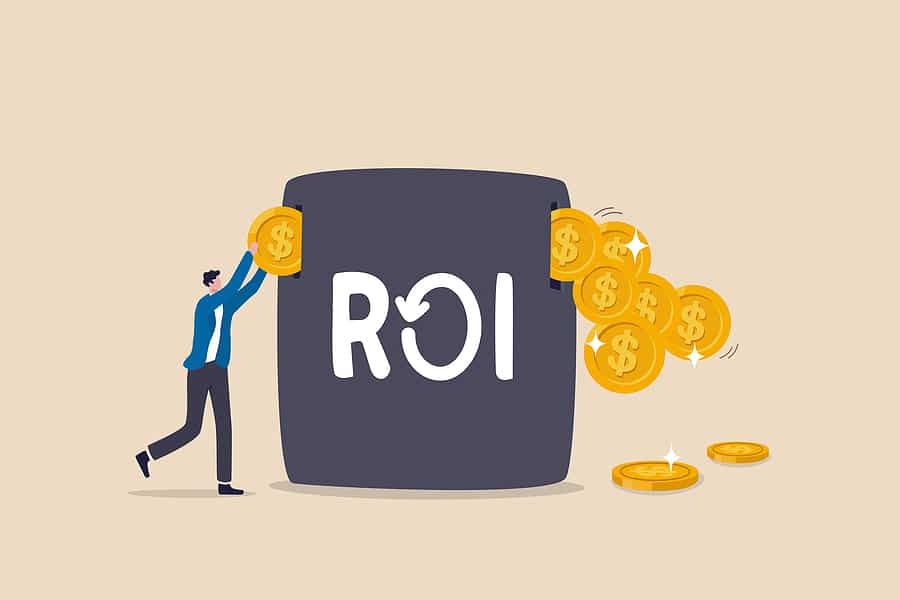Revenue marketing is a strategic approach to marketing your product or service that focuses on generating revenue rather than awareness or brand recognition. This approach involves a holistic strategy with one primary goal in mind: driving revenue and sales.
Modern revenue marketing can be used in any industry or sector, but it’s most often associated with B2B organizations that have complex sales cycles.
Pros of Revenue Marketing
By implementing revenue marketing strategies, your new or established business can enjoy many advantages.
The ROI of Revenue Marketing Is Measurable
You can easily measure your return on investment (ROI) when it comes to revenue marketing because everything you do is trackable. Your team can track how many people visited your website, how many people downloaded a piece of content, and so on.
This way, you know exactly what worked and what didn’t, which allows for better decision-making and higher profits.
Revenue Marketing Is Scalable
Revenue Marketing has the potential to help organizations scale their models with relative ease as they grow. If you have one product or service, you can use the same strategies to drive revenue as you would with a full catalog.
The process involves analyzing your customers and understanding their needs. Then you can tailor your marketing efforts to meet those needs more effectively.
This breakdown shows that revenue marketing is scalable because it doesn’t matter how many people you’re trying to reach or what types of products or services you offer — it’s all about understanding who your customers are and what they want from you.
It Requires Less Investment Than Other Types of Marketing Strategies
Revenue marketing requires less investment than other marketing strategies because it doesn’t rely heavily on paid advertising or other tactics that are expensive to implement.
Unlike strategies emphasizing brand awareness, you’ll spend less money developing your online and in-person image. You can focus on improving the customer experience and increasing sales instead of spending money on ads and other campaigns designed to drive traffic to your website.
Cons of Revenue Marketing
Revenue marketing is one of the most effective ways to grow your company. It can help you generate more leads, increase sales, and attract new customers. However, it’s not without its drawbacks. Revenue marketing has some disadvantages you should be aware of before embarking on this marketing strategy.
It Takes Time
The biggest disadvantage of revenue marketing is that it requires a long-term commitment from your company.
You have to invest time and resources into building customer relationships; it isn’t something you can turn on and off when you need it. If you have a small team or a limited budget, this may not be your best option.
It’s Not Always Dependable
Revenue marketing relies heavily on lead generation and conversion rates. If either of these falls short, your revenue will also suffer.
For example, if you’re relying on affiliate partners for a large portion of your sales, but they go out of business or stop sending traffic to your site due to changes in the market or their own business model, then your revenue could take a hit.
Learn More About Revenue Marketing with Net Profit Marketing
As a whole, revenue marketing is a viable option for many brands that are looking to generate more sales and cash inflow. Our experts at Net Profit Marketing can help your team determine whether revenue marketing is right for you and help you build and execute a strategy that suits your business. Contact us today to learn more.



Leave a Reply: